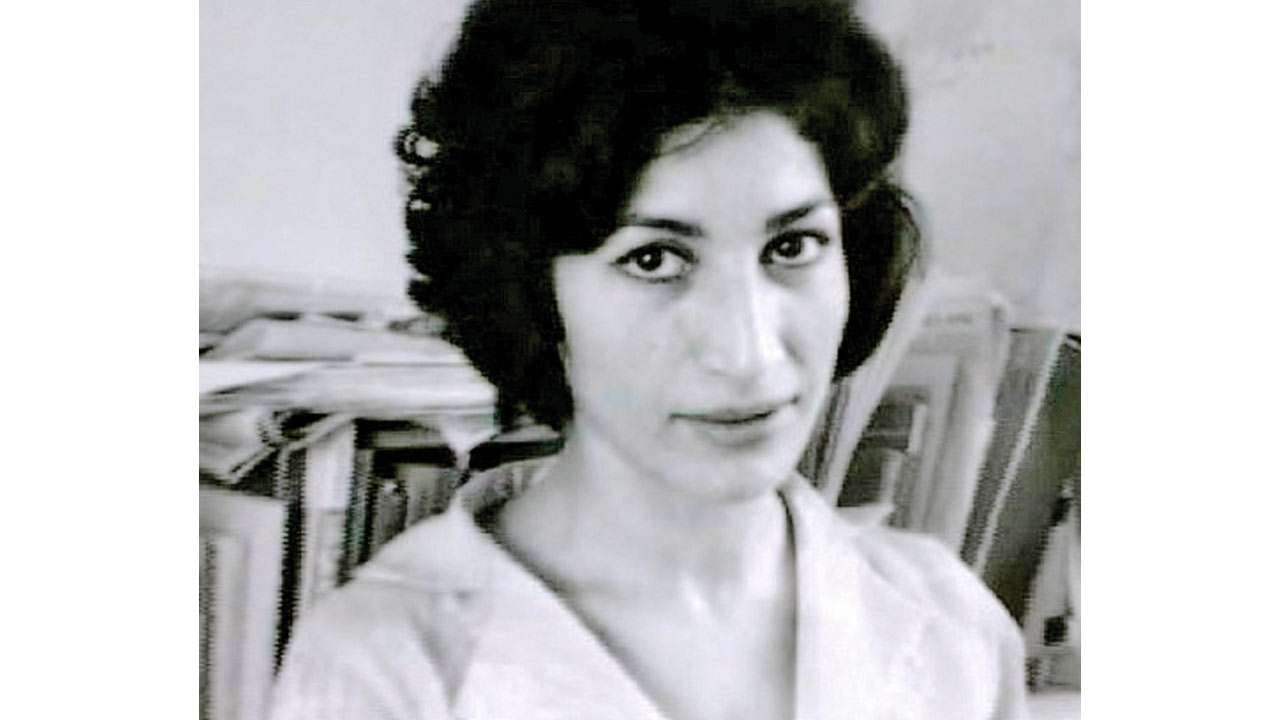
I know a sad little fairy who lives in the sea
and plays the wooden flute of her heart tenderly,
tenderly….
(Another Birth, tr. Sholeh Wolpe)
Forough Farrokhzad (1935-1967), the young Iranian poet, has dominated the cultural spaces of Iran, and her multiple poetic translations have continued to set fire to the imagination of women poets around the world. In a cultural universe of literature and arts dominated largely by men, Forough was never afraid to write unabashedly as a woman. Poets like Adrienne Rich (who also happened to be her contemporary) had often raised questions about the kind of writing women poets did, and their rather conscious awareness of a male audience when they wrote. Forough was never afraid to get in touch with her innermost self and express herself in a bold lexicon. Her poetry was the poetry of protest through a revelation of the innermost world of women - their intimate secrets and desires, their sorrows, longings, aspirations and at times even their articulation through silence. Her poetry was bold, brilliant, angry and unapologetically sensuous. Known for her candid writings challenging the patriarchal limits of Iranian society, she is often compared to Sylvia Plath.
Born in 1935 as the third of seven children in a comfortable middle-class home, she attended school until the ninth grade, then was taught painting and sewing at a girls’ school for the manual arts. Forough married at sixteen, but divorced in a few years and subsequently lost custody of her son, Kamyar Shapour (subject of The Return). Forough was given few visiting rights, and the child was brought up with the impression that his mother had abandoned him for poetry and the pursuit of her sexual pleasures. This was a constant source of torment to her.
In her first collection in 1955, The Captive (Asir), she wrote: My fevered, raving poem / shamed by its desires, / hurls itself once again into fire, / the flames’ relentless craving. She wrote intrepid verses about sexual pleasure and in doing so trashed just about every known taboo about what a woman could voice even in a patriarchal society. She also wrote poems with strong feminist undertones (To My Sister).
Her successive collections, The Wall ( Divaar) from 1956, and Rebellion (Esyaan), 1958, were controversial for their open expression of feminine desire, a subject that was till now considered a taboo.
Forough spent nine months in Europe during 1958. After returning to Iran, in search of a job she met filmmaker and writer Ebrahim Golestan, who reinforced her own inclinations to express herself and live independently, and with whom she began a love affair. Four years later, her pathbreaking documentary set in the leper colony titled, The House is Black, was released. “Many intellectuals viewed the film as a statement about the decaying state of their own society, where all cures for the body politic were sought through faith and prayers rather than through rational discourse”, writes Sholeh Wolpe, her translator and biographer. Within a year, the film won the prestigious Best Documentary Award in the 1963 Oberhausen Film Festival in Germany. In fact, the director, Abbas Kiarostami, has drawn from her work repeatedly, including his 1999 magnum opus, The Wind Will Carry Us.
Reborn (1964), a collection of 35 poems, was hailed by critics and the poet herself as a work of great writerly maturation.
On February 14, 1967, Forough visited her mother, who later recalled their conversation over lunch as the nicest that they ever had. On the way back her jeep station wagon swerved to avoid an oncoming vehicle and struck a wall. Thrown from her car, and barely 32, she died of head injuries.
A fifth collection, Let us Have Faith in the Beginning of the Cold Season, was posthumously published in 1972, marked by recurring themes of loneliness, death, deformation, as well as visionary, tender poems. She wrote:
And this is me/ a woman alone/ on the threshold of a cold season/ on the verge of understanding/ the earth’s polluted existence/ and the simple sadness of the sky/ and the futility of these concrete hands (tr. Jasmin Darznik).
Renowned and revered in her lifetime for her emotionally dense and formally controlled poetry, and her sudden death at the peak of her literary prowess ensured the creation of a legendary aura around her life. Her translations meticulously done by Sholeh Wolpe (Sin: Selected Poems of Forough Farrokhzad 2007) along with Jasmin Darznik’s fictional biography, Song of a Captive Bird (2018), are bringing her to a wider, non-Iranian audience. The distinctness of her voice, its quiet confidence, at the same time the pathos of it being snuffed at such a tender age, forged in the reader a shared conundrum of the awareness of an ephemeral state of existence, a romance of a lost promise and the lasting impact it can have in such a short lifespan.
The author is a poet, editor and a translator